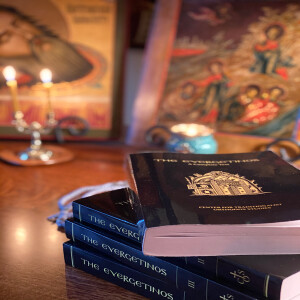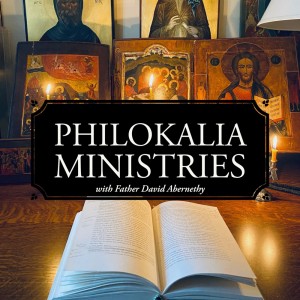
- Podcast Features
-
Monetization
-
Ads Marketplace
Join Ads Marketplace to earn through podcast sponsorships.
-
PodAds
Manage your ads with dynamic ad insertion capability.
-
Apple Podcasts Subscriptions Integration
Monetize with Apple Podcasts Subscriptions via Podbean.
-
Live Streaming
Earn rewards and recurring income from Fan Club membership.
-
Ads Marketplace
- Podbean App
-
Help and Support
-
Help Center
Get the answers and support you need.
-
Podbean Academy
Resources and guides to launch, grow, and monetize podcast.
-
Podbean Blog
Stay updated with the latest podcasting tips and trends.
-
What’s New
Check out our newest and recently released features!
-
Podcasting Smarter
Podcast interviews, best practices, and helpful tips.
-
Help Center
-
Popular Topics
-
How to Start a Podcast
The step-by-step guide to start your own podcast.
-
How to Start a Live Podcast
Create the best live podcast and engage your audience.
-
How to Monetize a Podcast
Tips on making the decision to monetize your podcast.
-
How to Promote Your Podcast
The best ways to get more eyes and ears on your podcast.
-
Podcast Advertising 101
Everything you need to know about podcast advertising.
-
Mobile Podcast Recording Guide
The ultimate guide to recording a podcast on your phone.
-
How to Use Group Recording
Steps to set up and use group recording in the Podbean app.
-
How to Start a Podcast
-
Podcasting
- Podcast Features
-
Monetization
-
Ads Marketplace
Join Ads Marketplace to earn through podcast sponsorships.
-
PodAds
Manage your ads with dynamic ad insertion capability.
-
Apple Podcasts Subscriptions Integration
Monetize with Apple Podcasts Subscriptions via Podbean.
-
Live Streaming
Earn rewards and recurring income from Fan Club membership.
-
Ads Marketplace
- Podbean App
- Advertisers
- Enterprise
- Pricing
-
Resources
-
Help and Support
-
Help Center
Get the answers and support you need.
-
Podbean Academy
Resources and guides to launch, grow, and monetize podcast.
-
Podbean Blog
Stay updated with the latest podcasting tips and trends.
-
What’s New
Check out our newest and recently released features!
-
Podcasting Smarter
Podcast interviews, best practices, and helpful tips.
-
Help Center
-
Popular Topics
-
How to Start a Podcast
The step-by-step guide to start your own podcast.
-
How to Start a Live Podcast
Create the best live podcast and engage your audience.
-
How to Monetize a Podcast
Tips on making the decision to monetize your podcast.
-
How to Promote Your Podcast
The best ways to get more eyes and ears on your podcast.
-
Podcast Advertising 101
Everything you need to know about podcast advertising.
-
Mobile Podcast Recording Guide
The ultimate guide to recording a podcast on your phone.
-
How to Use Group Recording
Steps to set up and use group recording in the Podbean app.
-
How to Start a Podcast
-
Help and Support
- Discover

We continued our reading of the Evergetinos this evening with hypotheses 19 and 20. Once again we find ourselves considering the fathers’ teaching on eating and our use of food. Part of the reason they spend so much time on this subject is because they understand the meaning that food has for us as human beings and that it often goes well beyond that of nourishment. We come into this world and our first and earliest experience is that of being suckled; fed at the breast of our mother and thereby comforted. On a psychological level, food can continue to have this meaning. That is not necessarily something bad. There is a form of communion that we have with each other when we have a common meal. Indeed, this is why Christ gives himself to us as Eucharist. However, in our sin, the desire for food can be driven more by the emotional needs that we have in our day-to-day struggles. The fathers understood that the psychological reality affects us spiritually.
Over and over again, we can turn to the things of this world to satisfy the longing of the human heart that God alone can fill. Christ is the Bread of Life and he alone can nourish us upon his love. Thus the fathers, especially those who entered into the desert, became acutely aware of the need to be watchful of this bodily hunger. When we lose our watchfulness or when we relax our disciplines, once again we can move towards satisfying ourselves through the things of this world.
Food can become an idol. The monks understood that even in our religiosity we can be tempted to celebrate feasts in such a way that we cast aside all that was gained through fasting. What worth is it to fast 40 days of Lent then only to turn around and eat excessively for 50 days until Pentecost?
The fathers also identified another danger. Our religious sensibilities and identity can be just strong enough that they lead us to want to maintain the illusion of holiness and discipline. The fathers warn us about the temptation to secret eating. Hiding the truth from others as well as from oneself only prevents repentance. In order to hold on to the illusion and false image of the self, we can destroy ourselves spiritually.
---
Text of chat during the group:
More Episodes
 2025-09-03
2025-09-03
 312
312
 2025-08-26
2025-08-26
 435
435
 2025-08-19
2025-08-19
 433
433
 2025-08-13
2025-08-13
 455
455
 2025-08-05
2025-08-05
 507
507
 2025-08-01
2025-08-01
 460
460
 2025-07-22
2025-07-22
 529
529
 2025-07-16
2025-07-16
 495
495
 2025-07-13
2025-07-13
 897
897
 2025-07-08
2025-07-08
 505
505
Create your
podcast in
minutes
- Full-featured podcast site
- Unlimited storage and bandwidth
- Comprehensive podcast stats
- Distribute to Apple Podcasts, Spotify, and more
- Make money with your podcast
It is Free
- Privacy Policy
- Cookie Policy
- Terms of Use
- Consent Preferences
- Copyright © 2015-2025 Podbean.com


